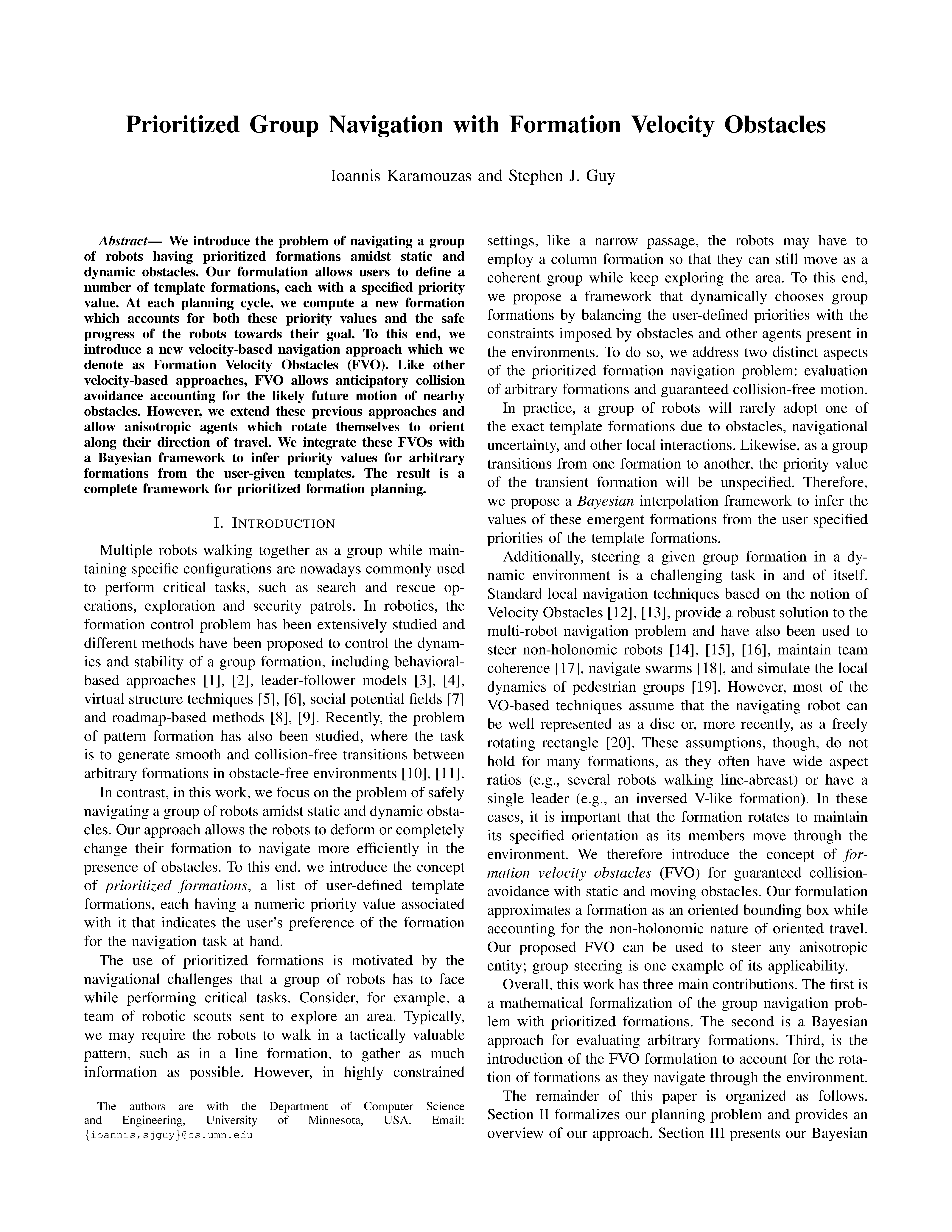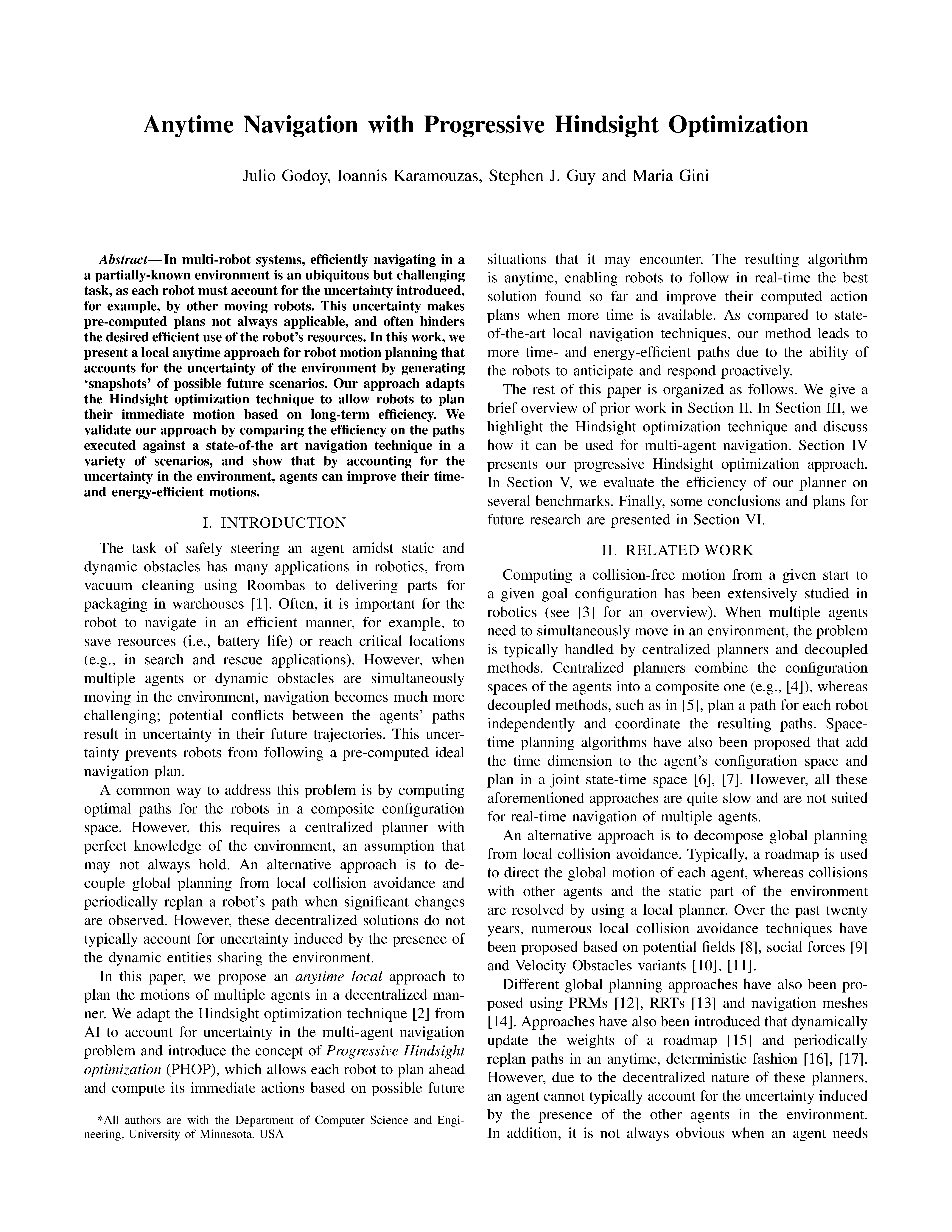
|
|

|
In multi-agent navigation, agents need to move towards their goal locations while avoiding collisions with other agents and static obstacles, often without communication with each other. Existing methods compute motions that are optimal locally but do not account for the aggregated motions of all agents, producing inefficient global behavior especially when agents move in a crowded space. In this work, we develop methods to allow agents to dynamically adapt their behavior to their local conditions. We accomplish this by formulating the multi-agent navigation problem as an action-selection problem, and propose an approach, ALAN, that allows agents to compute time-efficient and collision-free motions. ALAN is highly scalable because each agent makes its own decisions on how to move using a set of velocities optimized for a variety of navigation tasks. Experimental results show that the agents using ALAN, in general, reach their destinations faster than using ORCA, a state-of-the-art collision avoidance framework, the Social Forces model for pedestrian navigation, and a Predictive collision avoidance model.